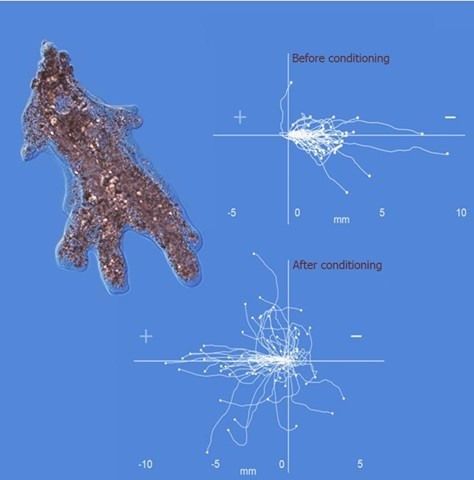A multi-disciplinary group of international researchers has shown for the first time that even one-celled organisms such as amoebae can exhibit a conditioned response, remembering a pathway to food for up to 90 minutes.
Pavlov's famous experiments with dogs showed that higher order organisms could be trained to respond to a stimulus rather than the actual thing – in his case, a bell instead of food. However, new experiments conducted by a Spanish mathematician, cancer researcher, pathologist and an Israeli brain scientist show that even one-celled organisms exhibit conditioned responses.
Their results were published in Nature Communications recently.
Dr. Shira Knafo of the Department of Physiology and Cell Biology, Faculty of Health Sciences, and The National Institute for Biotechnology in the Negev, Dr. Ildefonso M. De la Fuente of the CEBAS-CSIC Institute and the Department of Mathematics, Faculty of Science and Technology, University of the Basque Country, Dr. María Dolores Boyano of the Department of Cell Biology and Histology, Faculty of Medicine and Nursing, University of the Basque Country, and their colleagues demonstrated that amoebae will retrace a pathway to food even in the absence of food for anywhere from 20 minutes to 90 minutes. All without having a brain!

Instead of a brain, Knafo and her colleagues believe the memories are encoded temporarily onto a complex network of proteins.
In their experiments, the researchers put amoebae proteus on a slide with an electrical current running through it. The amoebae are naturally drawn to the side with the negative current. However, if food is put on the positive side, then the amoebae will make their way there. More interestingly, even if the food is taken away, the amoebae will still gravitate towards the positive side for a certain amount of time. The researchers discovered a similar finding in the related Metamoeba leningradensis.
This discovery opens a pathway towards understanding cell adaptation in a variety of important biological processes such as fetus development, the spread of cancer and in how we learn and remember.
Media Coverage:
Ha'aretz
Breaking Israel News